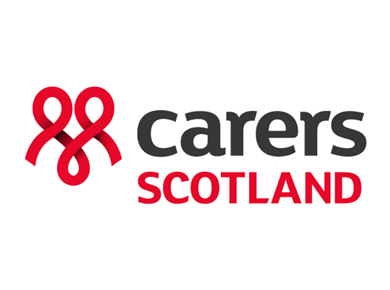One of the biggest drivers of financial stress has been the increasing cost of energy bills in the UK.
This has placed huge pressure on day-to-day living costs. It is a fast-moving situation, and this can add to the challenges of managing such a change emotionally as well as financially.
If you are struggling with your energy costs, there are some measures in place – those proposed by the UK Government to help with short-term costs of energy bills, as well as various potential ways you could try to tackle fuel poverty and large bills.
We are aware that many of these measures are subject to change and we will endeavour to keep you updated as quickly as possible on potential support that could be available to you as a carer, or for the person you care for.
Click the sections below to read more about different ways to get help with our energy bills.
There is also support available if you are on a means-tested benefit:
UK Government Cost of Living payment
More than 8 million households on means-tested benefits will receive a payment of £650. This includes all households who receive Universal Credit, Income-based Jobseekers Allowance, Income-related Employment and Support Allowance, Income Support, Working Tax Credit, Child Tax Credit, and Pension Credit.
And if you are a pensioner or are disabled and receive certain benefits you may also be entitled to receive a one-off payment of £300 and £150 respectively.
For more details on these payments please click this link.
Welsh Government Winter Fuel Support Scheme 2022-2023
Eligible households can claim a one-off £200 cash payment from their local authority. The money is to provide support towards paying winter fuel bills. This is in addition to the winter fuel payment offered by the UK Government.
The payment will be available to all eligible energy customers regardless of how they pay for fuel. This includes payments made on a pre-payment meter, by direct debit, paid quarterly or for those who use off-grid fuel.
The scheme will be open to households where an applicant is in receipt of one of the qualifying benefits:
- Income Support
- Income-Based Job Seekers Allowance
- Employment and Support Allowance
- Universal Credit
- Working Tax Credits
- Child Tax Credits
- Pension Credit
- Personal Independence Payment (PIP)
- Disability Living Allowance (DLA)
- Attendance Allowance
- Carers Allowance
- Contributory Benefits
- Council Tax Reduction Scheme (CTRS)
Applicants must also be responsible for paying the energy bills for the property.
Winter Fuel Payment
If you were born on or before 25 September 1956 you could get between £250 and £600 to help you pay your heating bills. This is known as a ‘Winter Fuel Payment' and is paid out in November or December.
Cold Weather Payment
The Cold Weather Payment operates from November to March each year and supports households on specified benefits. It provides £25 for each 7-day period of very cold weather between 1 November and 31 March.
Water Bills
HelpU
Welsh Water has the HelpU scheme for households on the lowest income. This means-tested tariff ensures you will receive the lowest annual water bill provided by the company. It should also be noted that some benefits including housing benefit and disability and carer allowances are not included in the means-testing process.
Water Sure
Welsh Water offers support through the Watersure scheme of a fixed rate annual tariff for people on certain benefits and who have medical conditions that require additional water usage.
With energy bills rocketing many people are struggling to pay their bills or are worried about the winter and how to cope. In this section, we will give you information about what to do if you are struggling to pay your energy bills or feel you may in the future – either by direct debit/quarterly bill or pre-payment meter.
Direct Debit / Quarterly Bill
If you’re struggling to pay your energy bills the first step is to get in touch with your supplier to let them know that you are having trouble.
You may be able to arrange a payment plan with them by working out what you can afford to pay. If you are on benefits, you may be able to repay your debt through the Fuel Direct Scheme.
Breathing Space Scheme
If you cannot afford to pay your energy bills in the short term, you may be eligible for Step Change’s Breathing Space Scheme. Officially called the Debt Respite Scheme, your creditors won't be able to add interest or fees to your debts, or take enforcement action, for 60 days. You'll still need to keep making your regular payments if you can afford to.
Disconnection
You may be worried about being disconnected – and it could be possible if you haven’t paid a bill for 28 days. However, there are certain circumstances – including if you are older or disabled – where you cannot be disconnected between 1 October and 31 March.
Your supplier may also have signed up to the ‘Energy UK Vulnerability Commitment’ – which includes not disconnecting you between 1 October and 31 March if you have children under 16 living with you, or at any time if:
- are disabled
- have long-term health problems
- have severe financial problems
- have children under 6 years old living at home.
Please visit the Citizens Advice (Wales) page on disconnection for more details and advice by clicking this link.
Pre-Payment Meter
A pre-payment meter is also known as a ‘pay-as-you-go’ meter. You top up your energy by using a smartcard, key or fob – in some instances, this can be done online or on a smartphone, but in many cases, you need to go to a shop to top up.
Your supplier may want to switch you to a pre-payment meter if you fall too far behind on bills you normally pay by monthly Direct Debit, or quarterly. While it can be useful to be able to only pay for the energy you use each week if you do not have enough money to top up your gas and/or electricity will not work.
There are schemes in place such as fuel vouchers which could help, please see below.
Your supplier can’t make you move to a pre-payment meter in the following instances:
- are disabled in a way that makes it hard to get to, read or use the meter
- have a mental health condition that makes it hard to get to, read or use the meter
- have an illness that affects your breathing, such as asthma
- have an illness that’s made worse by the cold, such as arthritis
- use medical equipment that needs electricity - for example, a stairlift or dialysis machine.
There are other circumstances where you can’t be moved to a prepayment meter – please click this link to find out more.
Fuel Voucher Scheme
The Welsh Government has announced funding, to be administered through the charity Fuel Bank Foundation to increase their partnerships across Wales and provide fuel vouchers to people in Wales who are on a pre-payment meter and need help to top up their meter. The announcement says:
This partner network will enable the Foundation to distribute approximately 49,000 vouchers (either £30 in summer months or £49 in winter) into prepayment households across Wales at risk of disconnection, providing support to approximately 117,000 individuals (depending on the size of households). There will be a maximum of three vouchers per household in a six-month period but referral partners have some discretion.
For more information, please visit the Welsh Government website by clicking this link.
NEST
The Welsh Government Warm Homes Nest scheme will come to an end at the end of March 2024, with a new scheme replacing it on Monday 1 April 2024. The new scheme will have a greater focus on low carbon technologies for the home where it makes sense to do so, to support Welsh Government’s ambition to make Wales net zero by 2050. Under the new scheme, the best energy efficient solution will be delivered through insulation, low carbon heating and renewable technologies.
Nest will continue to provide advice to customers on saving energy and money and will remain open from Monday – Friday 9am – 6pm until the end of March 2024. Customers will also be able to express their interest in the new scheme through the Nest advice service and discuss other energy efficiency and low carbon grant schemes which are available.
To maximise delivery of applications in progress by the end of March 2024, we are not taking new applications except for eligible vulnerable customers with no heating or hot water at the property.
Customers who express an interest in the new scheme will be contacted as soon as possible following the new scheme launch.
Vulnerable households are households where the occupants include one or more of the following:
- a person aged 60 and over,
• a dependent child or children under the age of 16,
• a single person aged under 25,
• a person living with a long term illness or who is disabled
Please click this link for more information.
Gas Connection Grant
If you do not have gas central heating, you may be able to get help to make the switch to gas central heating. You may qualify if you are:
Receiving Key Qualifying Benefits
You live in a privately owned or rented property and claiming any of the benefits on the gas connection grant benefits list:
- Pension Guarantee Credit
- Income-based Jobseekers Allowance
- Working Tax Credit (an upper earnings limit applies)
- Child Tax Credit (an upper earnings limit applies)
- Income-related Employment and Support Allowance
- Income Support
- Universal Credit
- Council Tax Reduction
Spending a High Percentage of Disposable Income on Fuel
You are a social tenant, or live in a privately owned or rented property and are spending a high percentage of disposable income on household fuel
Please click this link for more information
AdviceLink Cymru
AdviceLink Cymru is a Welsh Government funded Citizen's Advice service designed to help people who are most in need of advice services, particularly those who would not usually seek advice.
AdviceLink Cymru offers quality assured advice on welfare benefits, debt, employment, education, housing, immigration and discrimination.
Latest updates

Carers UK responds to DWP announcement of aim to tackle all Carer’s Allowance overpayment alerts
Carers UK responds to Department of Work and Pensions (DWP) announcement that it will aim to tackle all Carer's Allowance…

Carer Poverty Coalition responds to Government's welfare reform Green Paper
It's extremely worrying that some measures within the Green Paper on Welfare Reform changing disability and health benefits will actively…

Carers UK celebrates Investing in Volunteers award
Carers UK is delighted to have achieved the UK-wide quality mark for organisations involving volunteers during the charity’s 60th anniversary…

New rise in Carer Support Payment in Scotland earnings limit will increase financial security for carers on a low income
Carers Scotland press release on the increase in earnings threshold for Carer Support Payment in 2025.
Got a question about caring?
Every day we hear from people who need help with looking after a friend or family member
Become a member for free
Joining Carers UK is free and takes just a few minutes.

